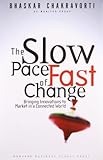1/23 必読記事・論考[IT]
NDO::Weblog 1/23/05 RSSフィードはウェブ広告にとって善か悪か
http://naoya.dyndns.org/~naoya/mt/archives/001551.html
NYT 1/23/05 Birth of an Industry: IPod Loading
http://www.nytimes.com/2005/01/23/jobs/23IPOD.html?oref=login
The rising popularity of Apple's sleek iPod has created a new niche service: the professional iPod loader. There are housekeepers to tend homes and gardeners to tend landscaping. Why not iPod loaders to take care of music collections?
For $1 to $1.49 a CD, the professional loaders will embark on the time-consuming process of copying a music collection onto an iPod, often providing a digital backup copy as well.
"It's a booming aftermarket of the iPod economy," said Bill Palmer, a 27-year-old entrepreneur who has created a nationwide network of iPod loaders called Loadpod. Each loader picks up the iPod and CD's at the client's home, then returns a fully loaded iPod in a few days.(略)
Converting enough CD's to fill a 40-gigabyte iPod can take 60 to 100 hours, depending on the computer's speed. (略)
Transferring a single full-length CD takes five to nine minutes on a standard computer, which means that most computers can generate $6 to $12 an hour. Even a computer capable of transferring a CD in three minutes would generate no more than $20 an hour.
But from the perspective of many customers, it's a bargain, especially for highly paid lawyers or executives. "The guy makes $250 to $500 an hour and he spends the next three weeks just to get his stupid CD collection on his iPods," said Kris Shrey, who runs cds-dvds-wanted .com.
Wired-J 1/20/05 「女性よりマックが好き」な俳優が演じる、愛と涙の一人芝居
http://hotwired.goo.ne.jp/news/20050121203.html
Jonathan Schwartz's Blog 1/21/05 An Open Letter to Sam Palmisano, CEO, IBM Corp.
http://blogs.sun.com/roller/page/jonathan/20050121#an_open_letter_to_sam1
SF Chronicle 1/22/05 Sun chief uses blog in challenge to IBM, Open letter calls for more compatibility with new products
http://www.sfgate.com/cgi-bin/article.cgi?f=/c/a/2005/01/22/BUGQ8AUFDF1.DTL
LA Times 1/23/05 'Hi, What's Your Major?' Is Reinvented on Website, Launched by five undergraduates at Harvard University in February, the free website, http://www.thefacebook.com , has 1.5 million members, nearly all of them students, from more than 300 colleges and universities nationwide.
http://www.latimes.com/technology/la-me-facebook23jan23,1,6945767.story?coll=la-headlines-technology&ctrack=2&cset=true
At Harvard, for instance, assistant economics professor Markus Mobius is using the site's database to examine the economic effects of social networks. At other colleges, researchers are interested in the site for studies on friendship, career paths and vegetarianism, among other topics.
Assistant Professor Markus Mobius' Papers On The Web
http://mykedev.nber.org/~mmobius/Post/papers.html
http://mykedev.nber.org/~mmobius/Post/papers/communication-qje.pdf
http://mykedev.nber.org/~mmobius/Post/Beauty/main.pdf
LinuxWorld 1/17/05 Why Is Open Source World Domination Taking So Darn Long?
http://www.linuxworld.com/story/47804.htm?DE=1
Again, why is world domination taking so long? One good answer for this big question can be found by reading the work of Harvard theorist, Bhaskar Chakravorti, PhD, who is currently one of the partners at the Monitor Group consulting firm.
The question, of course, is who has the guts to take on Microsoft?
In Chakravorti's language, the alternate market equilibrium (the Linux "mall") is being built by players such as Novell, IBM, HP, Red Hat, Sun Microsystems, Progeny, and Flexiety.com, who are catering to today's equivalent of Sony's teenagers. These players did not start out by offering products squarely in Microsoft's path. Rather, they began their deployment of open source solutions in areas such as servers, routers, and other back-office plumbing supplies.
While there have been big open source successes already in the enterprise market, the bigger potential for desktop open source lies in the developing world. According to Clay Christensen, Scott Anthony, and Erik Roth, coauthors of Seeing What's Next, the third in the three-volume disruption theory series, the potential for low-end and emerging market disruption is simply enormous. Of the world's 6 billion people, only 1 billion or so live in countries in which the average income exceeds $10,000.00 USD (as of November 2002).
The remaining 5 billion people or so live in countries with incomes below that mark. As the authors of Seeing What's Next explain, companies that address the needs of those customers stand to develop the resources, processes, and skills to move up market and compete in the upper one-sixth of the income pyramid:
Bhaskar Chakravorti
http://www.monitor.com/cgi-bin/iowa/ideas/authors.html?record=13

The Slow Pace of Fast Change: Bringing Innovations to Market in a Connected World
- 作者: Bhaskar Chakravorti
- 出版社/メーカー: Harvard Business School Pr
- 発売日: 2003/06/12
- メディア: ハードカバー
- クリック: 1回
- この商品を含むブログを見る
1/23 必読記事・論考(MGMT)
HBS working Knowledge 1/17/05 When Category Domination Isn't Enough, Mega-stores such as Staples and Home Depot have taken category domination to its limits. What next? How about dollar stores and compact shops in inner cities. A book excerpt from Category Killers.
http://hbswk.hbs.edu/item.jhtml?id=4572&t=marketing
knowledge@Wharton 1/05 The CEO's Path to the Top: How Times Have Changed
http://knowledge.wharton.upenn.edu/index.cfm?fa=viewArticle&id=1121
川合史朗
YAMDAS 1/24/05 待望の新刊『ハッカーと画家 コンピュータ時代の創造者たち』
http://d.hatena.ne.jp/yomoyomo/20050124#hacker
http://www.shiro.dreamhost.com/scheme/index-j.html#docs
OOエンジニアの輪! 4/03 第21回 川合史朗さんの巻
http://www.ogis-ri.co.jp/otc/hiroba/others/OORing/interview21.html
A Slice of My Life
http://www.lava.net/~shiro/
Addicted to Stephen King
http://www.lava.net/~shiro/Private/king/index.html
http://www.lava.net/~shiro/Private/king/novels.html
http://www.lava.net/~shiro/Private/king/movies.html